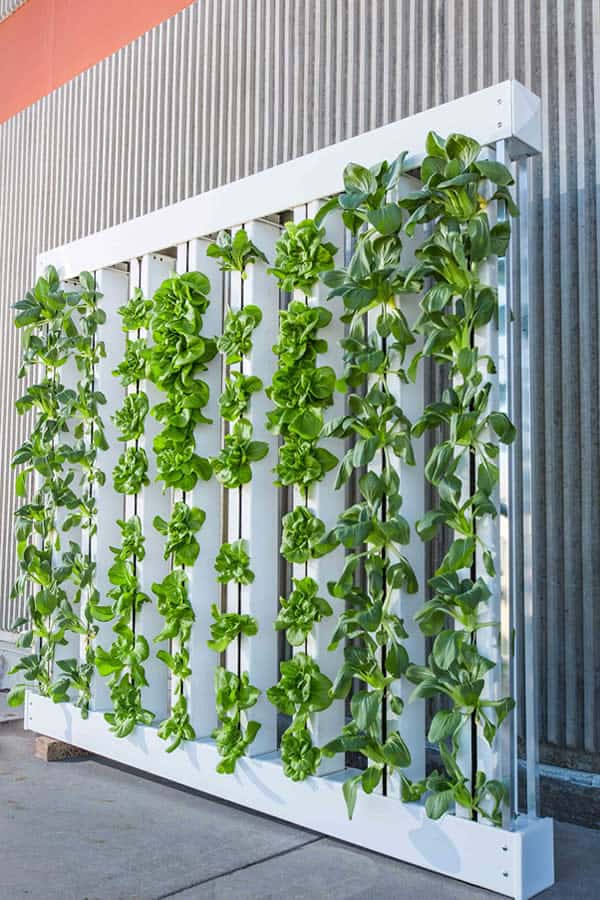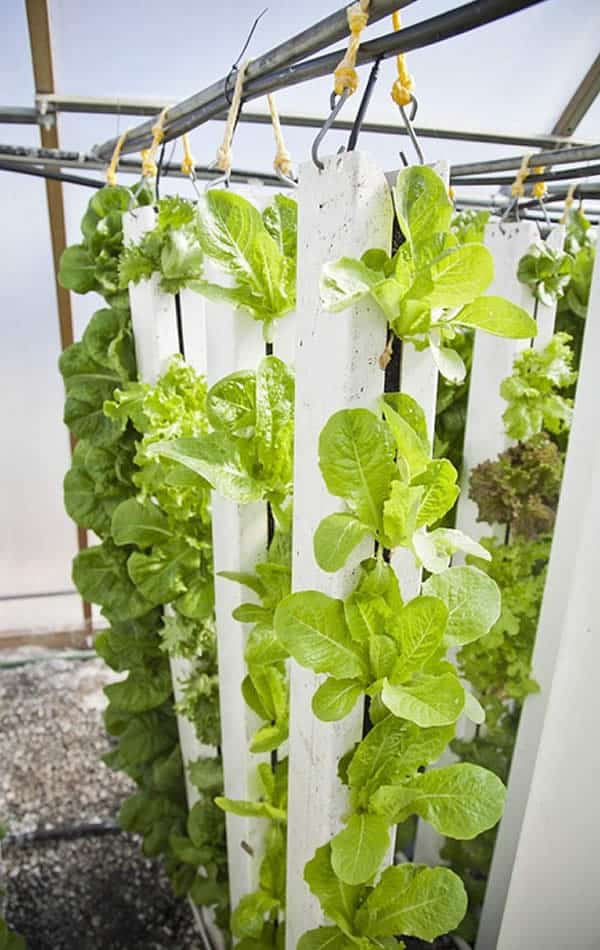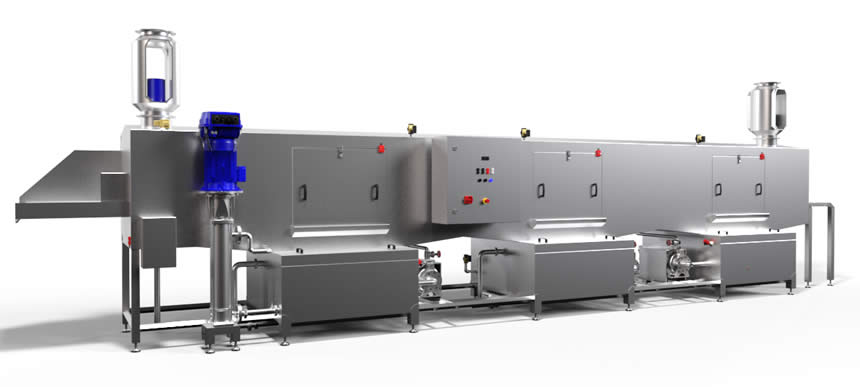Industrial Washing Machines Ltd are a World Leading Supplier of Vertical Farming Equipment Industry Washers
Commercial vertical growing systems are innovative solutions for Farming/gardening with all the constraints of today’s urbanised society. The use of vertical equipment requires much less of a sizeable estate as well as significantly reducing water consumption and potential logistical issues.
The goal of vertical farming systems isn’t just to save space; it’s also to find a more economical and sustainable way of producing food for the growing population. Vertical Farming is where plants are stacked in trays on shelves, instead of laid out horizontally across larger areas of land. In these systems, plants don’t rely on sunlight, rainwater, or pesticides, but instead, use LED lights and minerals instead.
How do they work and what’s the benefit?
Vertical farming systems consist of columns of vertically stacked growing trays or shelving in large warehouse-type buildings. At the beginning it was used for vegetables such as lettuce, kale, and arugula, but is expanding to a much wider variety of both fruits and vegetables.
- Plants grow much faster than in outdoor farms and without pesticides
- It requires fewer workers to harvest the produce than a typical farm needs
- The growing season never ends!
- Artificial light, algorithm-controlled water and climate settings, and automated soil and nutrient monitoring increases efficiency
At IWM we have a vast range of vertical farming equipment, alongside years of experience so we can help you find exactly what you need. View our line of racking washers for vertical farming.

For thousands of years nations have farmed the land for food. But with a vast rise in the population over recent centuries – increased living standards and falling death rates – the pressure on traditional farming has continually increased.
Vertical farming systems aren’t just about a reduction in space; it can provide a more sustainable way of producing helping in turn with the direct supply chain and other areas such as logistics. Vertical Farming Equipment enables plants to be stacked in vertical trays, instead of traditional horizontal pitches. Allowing the benefit of plants that don’t have to rely on natural sources of sunlight, rainwater, or pesticides, but LED lights and minerals instead.
With the global population moving to 8 billion and likely to increase to 10 billion by 2050, the challenge of providing enough food for everyone in a sustainable manner is certainly a fear. Concerns such as erratic weather patterns, logistical challenges and increasing yields, only affirms that “vertical farming” is the future of food production and IWM as part of the supply chain needs to move quickly to support these markets.
Vertical farming equipment is often set up in old warehouses, shipping containers, residential developments or where large scale production would not usually be possible if horizontal practices were in place. The vertical growing system market is prime now that space is at a premium. The vertical farming movement started out with common placed vegetables, but is ever expanding to a much wider variety of foods. Vertical farms also optimise the level of nutrients that crops receive.
In many instances, soil is removed altogether and crops are grown on membranes where they are sprayed with nutrient-rich blends.
Vertical farms do have their restrictions such as the level of energy required to maintain these environments. Albeit many vertical farms are powered by renewable technologies plus LED lighting so reduces power.
There is took of vertical farming in other areas such as fish and honey opening up yet more demand and scope for the supply chain to keep up with the advancements.

While modern techniques have enabled enhanced production rates, more than 11% of the world’s total land area is now used for crop production – creating environmental challenges that range from habitat clearing to soil degradation – and placing immense pressure on our planet’s resources.

